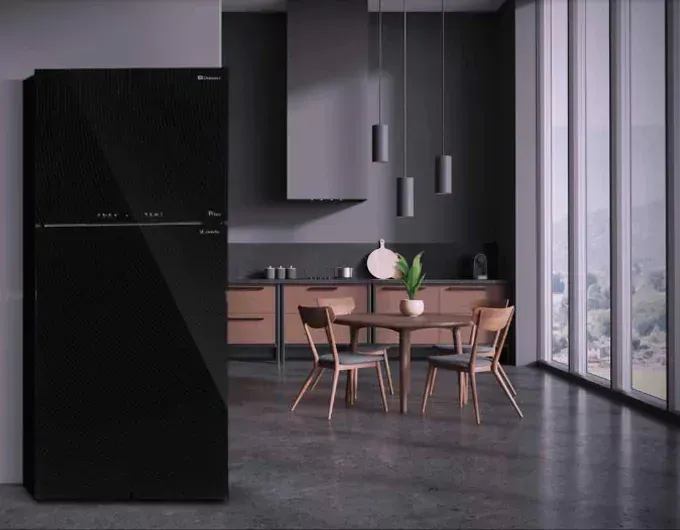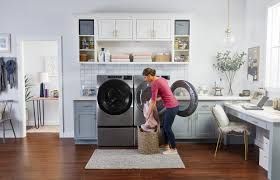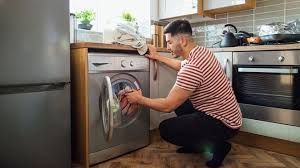Essential Refrigerator Maintenance: Most Asked Questions and Expert Answers
Q1: How often should I clean my refrigerator coils?
A: It's recommended to clean your refrigerator coils at least twice a year. Dust and debris can accumulate on the coils, causing the refrigerator to work harder, which can lead to higher energy bills and reduced efficiency. Use a vacuum or a coil brush to remove the buildup and keep your fridge running smoothly.
Q2: Why is my refrigerator leaking water?
A: Water leakage from a refrigerator is usually caused by a clogged defrost drain, a blocked or frozen water supply line, or a faulty door seal. To fix this, clear any blockages in the defrost drain, ensure the water line is unobstructed, and check the door seals for gaps or damage that may allow moisture to escape.
Q3: How do I know if my refrigerator door seal needs replacing?
A: If you notice condensation around the door, warm spots inside the fridge, or if the door doesn’t close tightly, the seal may need replacing. You can also test it by placing a dollar bill between the door and the fridge; if the bill slides out easily, it's time to replace the seal to maintain efficiency and prevent energy loss.
Q4: What temperature should my refrigerator and freezer be set to?
A: The ideal temperature for your refrigerator is around 37°F (3°C) and for your freezer, it should be at 0°F (-18°C). These settings ensure your food stays fresh longer without freezing in the fridge or thawing in the freezer, helping maintain food safety and quality.
Q5: How can I make my refrigerator more energy-efficient?
A: To improve energy efficiency, clean the coils regularly, ensure the door seals are tight, avoid overloading the fridge, and set the temperature to the recommended levels. Additionally, keep your refrigerator well-organized to allow air to circulate freely, and avoid leaving the door open for extended periods.
Q6: Why does my refrigerator make loud noises?
A: Loud noises from your refrigerator can be due to various issues, such as a malfunctioning compressor, a faulty fan, or a vibrating condenser coil. Regular maintenance can prevent some of these problems, but if the noise persists, it may be time to consult a professional technician to diagnose and fix the issue.
Q7: How do I prevent odors in my refrigerator?
A: To prevent odors, regularly clean spills, store food in airtight containers, and keep an open box of baking soda in the fridge to absorb smells. Additionally, discard expired or spoiled food promptly and clean the interior of your fridge every few months with a mixture of water and baking soda or vinegar.
Q8: What should I do if my refrigerator isn’t cooling properly?
A: If your refrigerator isn’t cooling properly, check the temperature settings, ensure the vents aren’t blocked, and inspect the door seals for leaks. Also, clean the coils and check if the condenser fan is working. If the problem persists, it may be a sign of a malfunctioning compressor or thermostat, and professional service may be needed.
Q9: How can I extend the lifespan of my refrigerator?
A: Regular maintenance, such as cleaning the coils, checking and replacing door seals, defrosting the freezer when needed, and ensuring proper temperature settings, can significantly extend your refrigerator's lifespan. Avoid overloading the fridge, and make sure it’s positioned with adequate space around it for ventilation.
Q10: Is it necessary to defrost my refrigerator?
A: If you have a manual defrost refrigerator, you should defrost it when the frost buildup reaches about a quarter-inch thick. For frost-free models, defrosting isn’t necessary, but it's still important to monitor for any frost issues, as excessive frost can indicate a problem with the defrost system.
You might also like
Educational Center
Book a Service Today
We will get back to you as soon as possible
Please try again later
Quick & Reliable
We are available 24/7
About Us
Authorized Appliance is an appliance repair contractor referral service. We connect you with appliance contractor in your area. All contractors are operated independently of Authorized Appliance. It is the responsibility of each user to verify that the contractor connected with meets all licensing and insurance requirements in that jurisdiction.
All Rights Reserved - Authorized Appliance




